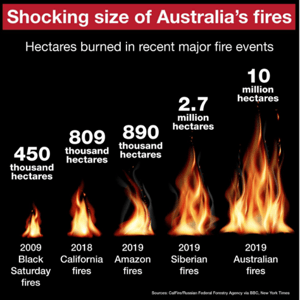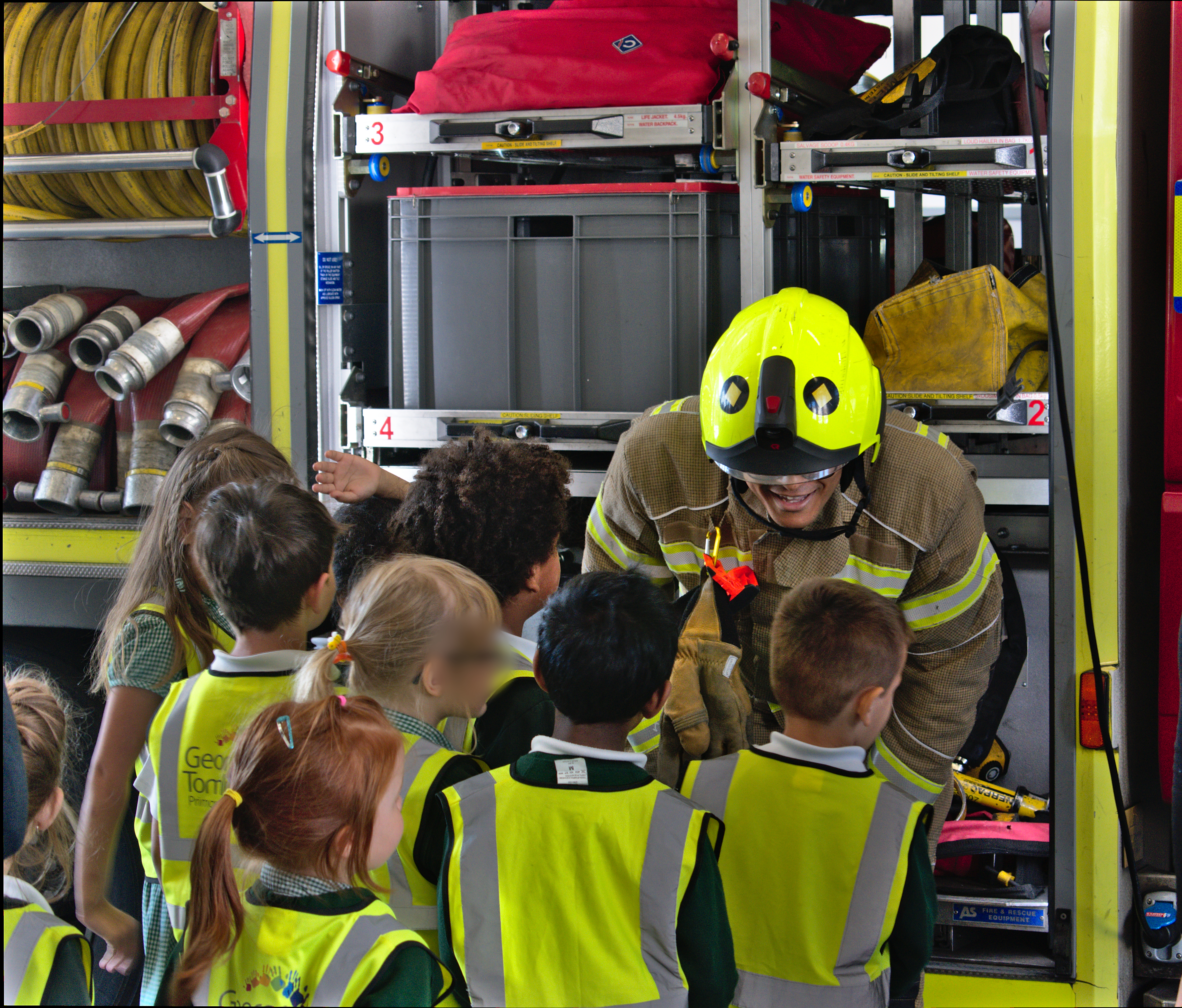It’s been an unprecedented and tragic summer in Australia and whether your school community has been directly affected by bushfires or not, all of us are feeling the devastation.
In 2017, in ‘Is your school bushfire ready?’ we opened with, “recent extremely hot weather conditions in several states and territories and the bushfires in NSW should act as a timely reminder that schools, and not just those in regional centres, need to be prepared for bushfires and the raft of potential life threatening hazards that can accompany them”.
However, now we have a situation where we also need to deal with the aftermath of bushfires-the very real trauma, grief and loss that will have been experienced by some of your students, staff and your wider community, as the children and staff return to school for this new year. Will your staff be ready to deal with the burdens that many children will carry? Will you be ready to deal with staff who have also been affected?
You and your staff may be faced with questions about fire safety and dealing with issues like managing grief, loss and what to do. Questions such as “Is our school safe?”, “What do I say to Jack whose family lost his home?” or “What can I do to help all the animals?”.
Above all, children will want to be assured that they will be safe at school, away from their homes and their parents. Their parents, by the way, will also want the same assurances!
The Statistics
Before we look at the possible scenarios that schools will face at the commencement of classes this year, let’s look at some of the statistics. This evidence, we would argue, shows that it will be more than just schools in the bushfire zones that will be affected.
Since October 2019:
- 27 lives have been lost (including three volunteer fire fighters) and there are still people missing.
- 2700 firefighters have been battling the blazes since December 2019.
- 10 million hectares of land have been burned-five million in New South Wales alone.
- An estimated 1.25 billion reptiles, birds and mammals have perished across NSW, Victoria, South Australia and Western Australia.
- 1,588 homes have been destroyed in NSW and another 653 homes damaged. A further 200 homes have also been lost in Victoria.
- The Insurance Council of Australia (ICA) estimates the damage bill from bushfires across the country since September 2019 at $700 million to date.
- Media coverage has been extensive and many images of hurt or dead animals have been published.
Staff Training and Preparedness
We know that many schools engage in annual training for their staff in first aid and/or in the use of fire-fighting equipment. However, have any of your staff been trained to deal with trauma and crisis? Have you or your staff been trained in crisis management?
There is no doubt that schools in nearly every state and territory will have staff and children who have been affected by the bushfires either through direct loss or indirect loss-including the loss of property and/or family members. Research on psychological outcomes from disaster media coverage shows that children are particularly vulnerable to trauma resulting from absorbing images and concepts like those that have been broadcasted across Australia. Would it not be sensible for staff to receive training in well-being and grief management?
According to The Educator, in their article “How teachers can help students cope with bushfire trauma”, apart from being tasked with educating and protecting children, they have pointed out that teachers working in fire-ravaged areas of Australia will also need to be strong pillars of emotional support for those impacted by the disaster.
It is understood, and often simply assumed, that teachers will play critical roles in helping children deal with traumatic issues. Children look to adults as role models in times of need. Professor Marjory Ebbeck, an early childhood education expert from the University of South Australia (UniSA), was quoted as saying “Teachers are one of the most trusted, reliable and safe adult figures to a child, beyond their immediate family. But, with the school term just around the corner, many teachers are now feeling underprepared”.
Some schools will have their own psychologists, chaplains, social workers and trained pastoral care staff who usually work with children with trauma and grief issues. However, what about your classroom teachers who are on the front line and are usually the first to deal with children with these types of concerns? In addition, if you intend to only rely on the few people in your school that have this type of training, will this be adequate if there are many children or staff who need assistance to deal with their issues?
Summary
Trauma, as experienced either directly or indirectly in this bushfire crisis, can pause the ability to learn.
Schools may need to provide training for their staff to help teachers recognise the signs of trauma in students and provide strategies to assist them. There is a very strong possibility that many children will attend school this year carrying their own burden of loss. Schools need to prepare for this very real and sad possibility.
FREE: Bushfire Safety & Wellbeing Professional Online Learning for Schools
To help schools with these challenges, the learning team at CompliSpace have curated/created Bushfire Safety & Wellbeing Online Learning for schools – free of charge – that covers both the practical and emotional sides of bushfire readiness and recovery.




